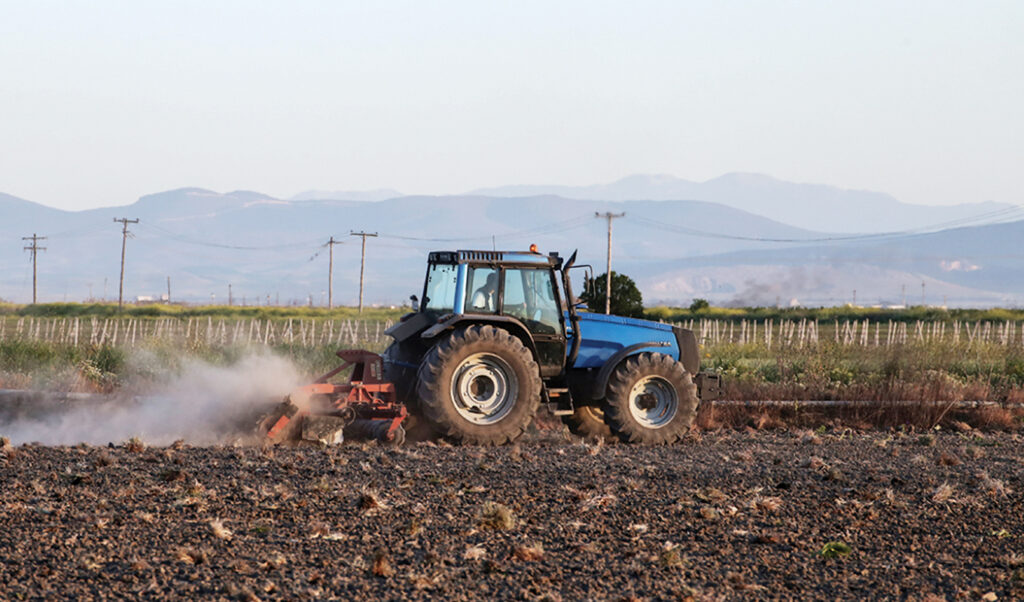The complex network of illegal subsidies through OPEKEPE is heading to the dock of justice starting this fall, with at least eight trials scheduled before Athens courts. At the same time, a parallel investigation by the European Public Prosecutor’s Office (EPPO) and the Financial Intelligence Unit is in full swing, gradually unraveling a scandal of European dimensions, with serious indications of “money laundering” and involvement of administrative officials.
The investigations target dozens of individuals from various agricultural regions across the country who allegedly collected hundreds of thousands of euros through EU subsidies without meeting the criteria stipulated by European regulations. Simultaneously, authorities are examining the possible participation of Payment Organization officials who apparently approved applications with incomplete or falsified data, facilitating the disbursement of the disputed funds. The scope of the case is illustrated by the fact that the Financial Intelligence Unit, under the guidance of honorary Supreme Court deputy prosecutor Charalampos Vourliotis, is now conducting a thorough audit of the past decade, examining asset declarations, bank account movements, and even cryptocurrency investments.
OPEKEPE: What authorities are investigating
The most recent development in the case concerns the search conducted at OPEKEPE offices, where the Financial Intelligence Unit team seized documents and electronic data. This investigation reportedly involves ten individuals from Thessaly, including New Democracy politician Kalliopi Samartzidou. The revelation of her involvement caused a stir on social media, while according to sources, her role in mediating subsidy approvals for third parties is being examined.
The Authority is investigating whether those involved submitted false declarations or forged documents to obtain EU subsidies. In cases where it’s determined that these funds did not correspond to actual agricultural or livestock activities, criminal prosecutions for fraud and “money laundering” are immediately initiated, while asset freezing orders have already been imposed in cases with strong evidence. It’s noteworthy that in the first trial, completed on July 29 at the Single-Member Criminal Court of Appeals, seven people were convicted for fraud related to agricultural subsidies granted for the 2019-2020 period. The defendants had falsely declared ownership of pastureland and livestock, collecting subsidies exceeding €170,000. The court imposed prison sentences from 9 to 15 months with suspension, recognizing mitigating circumstances for five of them.
The competent Authority is now proceeding with a thorough audit of the past decade, examining everything from declarations to cryptocurrencies
What was happening inside OPEKEPE
More serious cases remain pending, such as that of two farmers from Thessaly who allegedly illegally received subsidies worth €1.4 million and €300,000, respectively. For these cases, the Authority has already proceeded with bank account freezes and is monitoring money flows based on E9 tax declarations, banking transactions, and cross-references with tax authority files.
Interest now focuses on OPEKEPE’s internal operations, as it was found that specific administrative officials allegedly approved applications without adequate control or even with full knowledge of falsified data. The investigation has extended to possible political figures, as the money laundering law provides that investigations are not limited only to acts committed in the course of official duties. If involvement of former ministers or parliamentarians is established, these cases will not require parliamentary permission for investigation. Under scrutiny are also individuals who had decisive or intermediary roles in granting the disputed subsidies.
The Authority is examining the money trail to identify possible illegal enrichment, while its head, Charalampos Vourliotis, has indicated he won’t hesitate to proceed with asset freezes if serious evidence emerges. At the cooperation level, the memorandum signed last January by Vourliotis with European Chief Prosecutor Laura Kovesi in Luxembourg is particularly significant. Information exchange and findings transmission from Greek authorities to EPPO has intensified, as damage to the European budget is estimated to be greater than initially calculated.
At the government level, the Ministry of Agricultural Development and the tax authority have formed special audit teams, while administrative review of OPEKEPE’s subsidy payment procedures is in full progress. Government officials emphasize at every opportunity the political will for complete clarification of the case, accountability, and recovery of illegally obtained amounts. In any case, all indications suggest that developments this fall will be rapid and the illegal OPEKEPE subsidy case will continue to be at the center of current affairs, as investigations continue and are expected to intensify even more from autumn.
Published in Parapolitika




